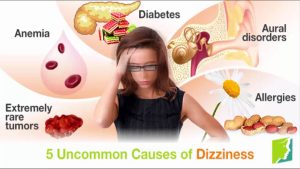- 20 February 2024
- 330
Post-Meal Spins: Investigate Dizziness Causes and Management

Understanding Post-Meal Dizziness
Post-meal dizziness, also known as postprandial hypotension, refers to a sudden drop in blood pressure after consuming a meal. This phenomenon often leaves individuals feeling lightheaded, dizzy, or even faint. While it can occur at any age, it’s more prevalent among older adults and those with certain medical conditions. Let’s delve deeper into the causes and management strategies for post-meal dizziness.
Causes of Post-Meal Dizziness
1. Autonomic Dysfunction
One of the primary causes of postprandial hypotension is dysfunction in the autonomic nervous system, which regulates bodily functions such as heart rate and blood pressure. When this system malfunctions, it can lead to inadequate blood flow to the brain after eating, resulting in dizziness. Explore More About (Sleeping Paralysis)
2. Digestive Processes
The act of digestion requires a significant amount of blood flow to the gastrointestinal tract. Consequently, after a meal, blood is diverted to the digestive organs, causing a temporary decrease in blood pressure elsewhere in the body, including the brain. This shift in blood flow can trigger dizziness in susceptible individuals.
3. Medication Side Effects
Certain medications, such as those used to treat high blood pressure or heart conditions, can inadvertently cause post-meal dizziness as a side effect. These medications may lower blood pressure to a level that is insufficient to maintain proper cerebral perfusion after eating.
4. Age-Related Changes
As individuals age, their blood vessels may become less elastic, making it more difficult for the body to regulate blood pressure effectively. This age-related change can predispose older adults to postprandial hypotension.

Management Strategies
1. Eat Smaller, More Frequent Meals
Instead of consuming large meals, which can exacerbate post-meal dizziness, opt for smaller, more frequent meals throughout the day. This approach helps prevent dramatic fluctuations in blood pressure after eating.
2. Stay Hydrated
Proper hydration is crucial for maintaining stable blood pressure levels. Be sure to drink an adequate amount of water throughout the day, especially before and after meals, to help mitigate postprandial hypotension.
3. Avoid Alcohol and Caffeine
Both alcohol and caffeine can contribute to dehydration and exacerbate postprandial hypotension. Limiting or avoiding these substances, particularly around meal times, can help manage symptoms of dizziness.
4. Monitor Medications
If you suspect that your medication may be contributing to post-meal dizziness, consult with your healthcare provider. They may adjust your dosage or prescribe an alternative medication to alleviate this side effect.
5. Gradual Changes in Position
When transitioning from sitting to standing after a meal, do so slowly to allow your body time to adjust. This gradual change in position can help prevent sudden drops in blood pressure and subsequent dizziness.
6. Wear Compression Stockings
Compression stockings can help improve circulation and prevent blood from pooling in the legs, reducing the likelihood of postprandial hypotension. Consider wearing these stockings, especially if you spend long periods sitting or standing.

Management Strategies
| Management Strategy | Description |
|---|---|
| Eat Smaller, More Frequent Meals | Opt for smaller, more frequent meals to prevent dramatic fluctuations in blood pressure after eating. |
| Stay Hydrated | Maintain proper hydration levels by drinking water throughout the day, especially before and after meals. |
| Avoid Alcohol and Caffeine | Limit or avoid alcohol and caffeine consumption, as they can exacerbate postprandial hypotension. |
| Monitor Medications | Consult with healthcare provider to adjust medication dosage or consider alternative medications. |
| Gradual Changes in Position | Transition from sitting to standing slowly to prevent sudden drops in blood pressure. |
| Wear Compression Stockings | Improve circulation and prevent blood pooling in the legs by wearing compression stockings. |
Conclusion
Post-meal dizziness, or postprandial hypotension, can significantly impact daily functioning and quality of life for affected individuals. By understanding the underlying causes and implementing appropriate management strategies, it is possible to mitigate the symptoms and improve overall well-being. Remember to consult with a healthcare professional for personalized advice and treatment recommendations. With proactive management, individuals can effectively navigate post-meal dizziness and lead fulfilling lives.

